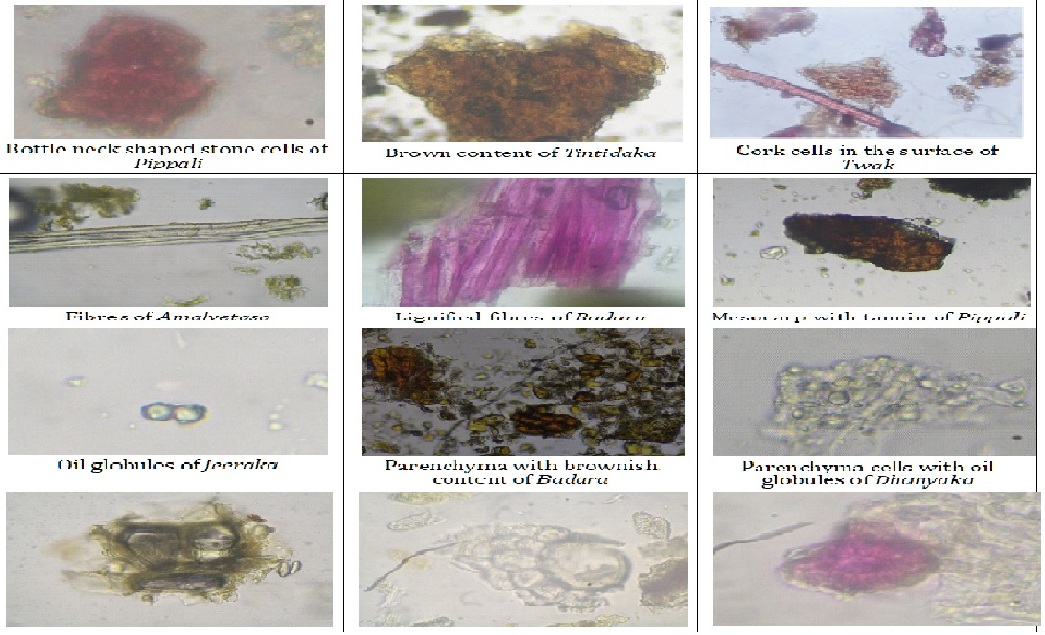Pharmacognostical and Pharmaceutical Analysis of Yavanishadavadi Vati - An Ayurvedic Polyherbal Formulation
Abstract
Pulmonary Tuberculosis (PTB) is caused by the aerobic acid-fast rod-shaped bacterium Mycobacterium tuberculosis. This tiny bacterium, expelled from a contagious host, can remain suspended in air as droplet nuclei for hours. Multidrug-resistant tuberculosis (MDR-TB) is a form of TB caused by bacteria that do not respond to isoniazid and rifampicin, the 2 most effective first-line TB drugs. In Ayurveda, the term Rajayakshma has been used interchangeably with tuberculosis. Rajayakshma is primarily attributable to Dhatukshaya (tissue emaciation or loss). Aim: To analyze the Pharmacognostical and Pharmaceutical properties of Yavanishadavadi Vati. Materials and Methods: Yavanishadavadi Vati was subjected to microscopic evaluation for pharmacognostical study, physico-chemical analysis like hardness, weight variation, loss on drying, ash value, acid insoluble extract, pH value, water soluble extract, alcohol soluble extract and high performance thin layer chromatography (HPTLC). Result: Pharmacognostical study showed the presence of certain identifying characteristics of all the ingredients of Yavanishadavadi Vati that is Yavani, Tintidaka, Shunthi, Amalvetasa, Dadima, Badara, Dhanyaka, Suvarchal Lavana, Jeeraka, Dalchini, Pippali, Maricha and Sarkara. In pharmaceutical study, preliminary physico-chemical analysis showed that hardness of Yavanishadavadi Vati was hardness 6.6Kg/cm2, ash value 10.59%w/w, loss on drying 8.17%w/w, water soluble extract 28.6%w/w, alcohol soluble extract 20.2%w/w and pH value was 6.5. HPTLC analysis showed eleven spots in 254nm and nine spots in 365nm. Conclusion: Present work was carried out to standardize the polyherbal formulation Yavanishadavadi Vati in terms of its identity, quality and purity. Pharmacognostical and physico-chemical observations revealed the specific characters of all the active constituents in the preparation.
Downloads

Copyright (c) 2024 International Journal of Ayurveda and Pharma Research

This work is licensed under a Creative Commons Attribution-NonCommercial-ShareAlike 4.0 International License.






